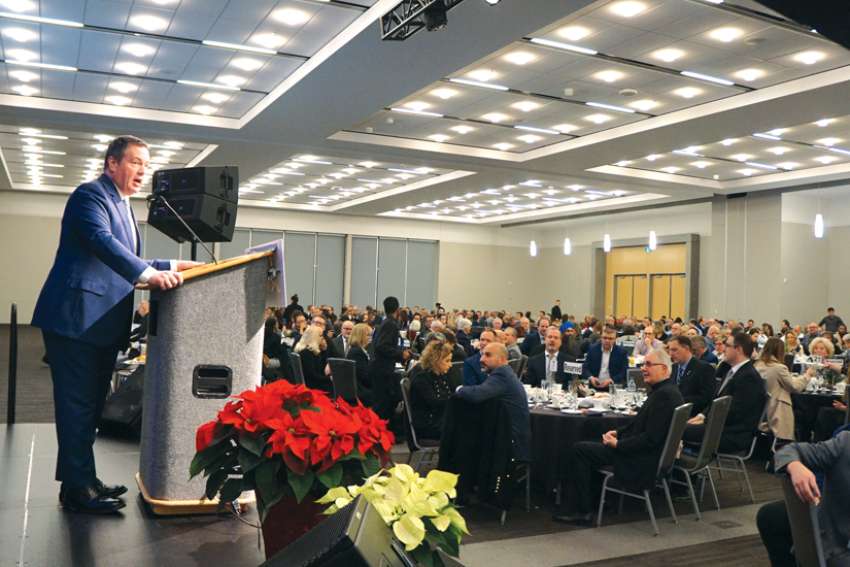“This prayer gathering today is not a threat to pluralism. It is pluralism in action,” Kenney told the nearly 700 legislature members, pastors and other guests on Nov. 25 at the Edmonton Expo Centre.
“An authentic pluralism is one that truly respects the beliefs of our fellow citizens and recognizes that for millions of Albertans their beliefs are informed and rooted in religious traditions,” he said.
The event was the first of its kind in five years. Reaction exploded on social media, with many criticizing it as an attack on separation of church and state and an example of religion interfering with political affairs.
“Much of that criticism seems to focus on this being a Christian event in particular,” said the United Conservative Party premier, himself a Catholic. “It is peculiar that those criticizing my participation in a Christian gathering are very silent when I’ve participated in dozens of events organized by other faith communities, including those of Jewish, Muslim, Sikh, Buddhist, Baha’i and other faiths.”
A prayer breakfast with the premier was an annual tradition that ended under Alberta’s previous NDP government. The event was initiated by UCP MLAs Dan Williams and Michaela Glasgo and organized by Pam Davidson, a former chair of the UCP Innisfail-Sylvan Lake nomination committee. They hope the breakfast continues as a way to honour both people of faith and to pray for the province’s political representatives.
Political attendance was dominated by members of the UCP, but the Alberta government did not sponsor or pay for the event. According to an email from the office of Williams, all ministers and MLAs were required to purchase their own tickets.
“Just that this event happened says a lot,” said Ryan Beaupré, a University of Alberta student who attended the breakfast. “It’s important to unite Christians in this ecumenical way just to say that faith is important in our public life.”
For Beaupré, gatherings of this kind are critical to a genuinely diverse and pluralistic society.
“I’ve been thinking a lot recently about how faith and public life are supposed to work together. It’s not immediately clear since we live in a liberal democracy,” he said. “But we don’t want our faith to just leave the public sphere, that’s not pluralism. That’s secularism.”
Religious freedom has recently been challenged across the country. An Ontario Court of Appeal decision has forced physicians who disagree with euthanasia and abortion to make direct referrals for these procedures. As well, the Quebec government’s Bill 21 now forbids religious wear for most people employed in the public sector.
Only days before the breakfast, the Alberta legislature’s standing committee for private member’s bills voted down a controversial bill aimed at protecting religious freedom and conscience rights. Bill 207, drafted by Williams, aimed to reaffirm the rights of health care practitioners to refuse to provide services that conflict with their moral or religious convictions. Many criticized the bill as a way to suppress access to medical services in the name of religious liberty.
During the breakfast Kenney did not acknowledge Bill 207 or the controversy it stirred. However, despite the backlash he received for speaking at the Christian event, the premier says his Catholic faith has not been a hindrance to his career, but an asset.
“Personally, it’s essential to my vocation to be grounded in my faith,” said Kenney. “As we see with Bill 21 in Quebec, there’s an increasingly hostile environment for people of faith in public life. That’s unfortunate, but I think it’s coming from a small minority of people. I think the vast majority of Canadians understand the open and natural approach to pluralism.”
(Grandin Media)


